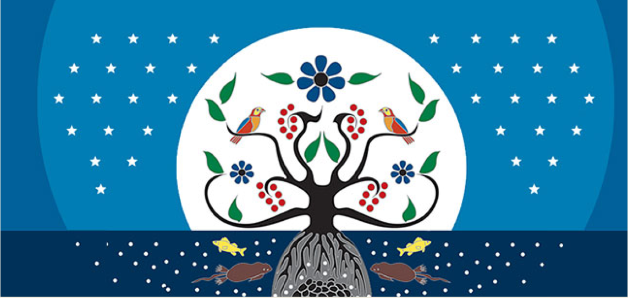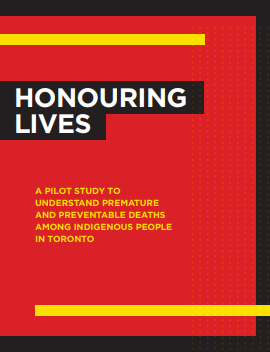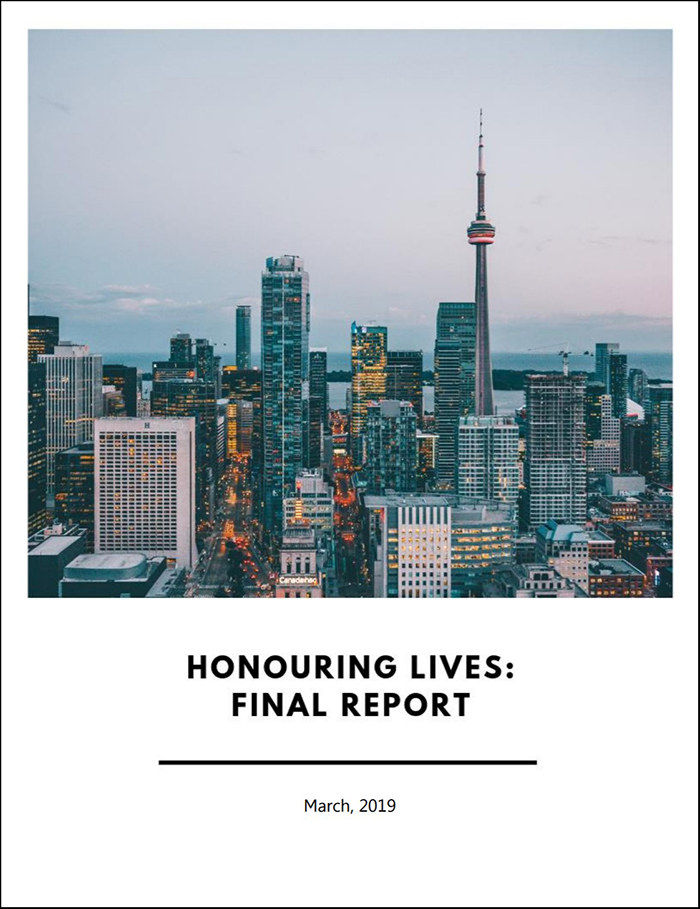
This is a Well Living House project. Well Living House is an action research centre for Indigenous infants, children, and their families’ health and well-being.
Learn more about Well Living House
A collaboration between Well Living House and Na-Me-Res, this project was a pilot study to understand the causes and contexts behind increasing rates of premature and preventable death among Indigenous people experiencing homelessness in Toronto.
Using verbal autopsies, the Honouring Lives project explored the root causes and contexts surrounding these deaths, and the ripple effects experienced by family, friends and a community of staff across the city. Researchers interviewed service providers, friends, and family members of five people who died in Toronto between 2014 and 2017.
Exploring the root causes of an alarming trend in premature mortality among Indigenous people in Toronto.
Our results confirmed community knowledge about the roots of these premature deaths. We found that the causes of death for all five subjects could be traced back to historical and ongoing processes of colonization through dislocation from family, community, and culture; racism at structural and interpersonal levels; and ongoing attempts at assimilation by the Canadian state. This research also revealed pathways for collaborative service and policy interventions that demand immediate action. Key recommendations include implementing increased culturally safe grief supports for Indigenous community members who are homeless or insecurely housed and addressing racism and discrimination in Emergency Departments.
Each of the five subjects whose lives were explored in this project were valued members of their communities, and they are deeply missed. This research sheds light on both the individual stories of these five people, as well as the contextual factors (such as colonialism, trauma, and child apprehension) that impacted them.
The research findings can be used to inform policies and services at the municipal, provincial, and federal levels. Our findings have important implications for services offered at Emergency Departments, drop-in centres, and community organizations, as well as implications for policies on child and family services, mental health and addictions services, and housing.
We hope that this project will result in long-term, stable funding for the grassroots solutions that are already supporting community members, as well as robust accountability measures addressing systemic racism throughout the healthcare and justice sectors.
In March 2019, the research team and collaborators hosted a research release and community gathering at the Native Canadian Centre of Toronto. Community members and stakeholders including frontline workers, representatives from the City of Toronto, and leadership from health organizations were engaged and invited to offer feedback on the project recommendations and next steps.
Knowledge translation for the project is ongoing. Currently, the research team is planning a series of gatherings with an expanded network of stakeholders and partners to strategize implementation of the research recommendations.



